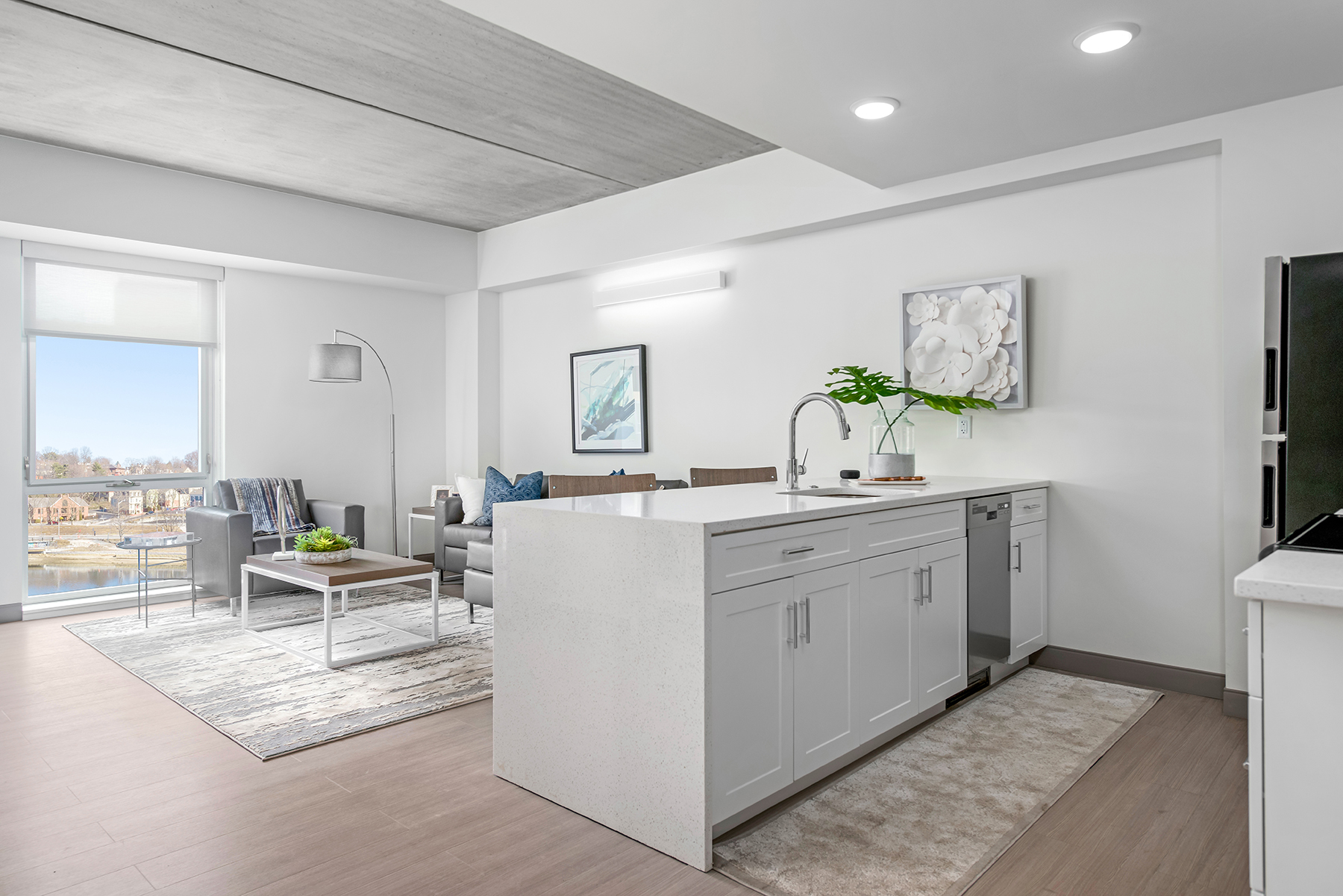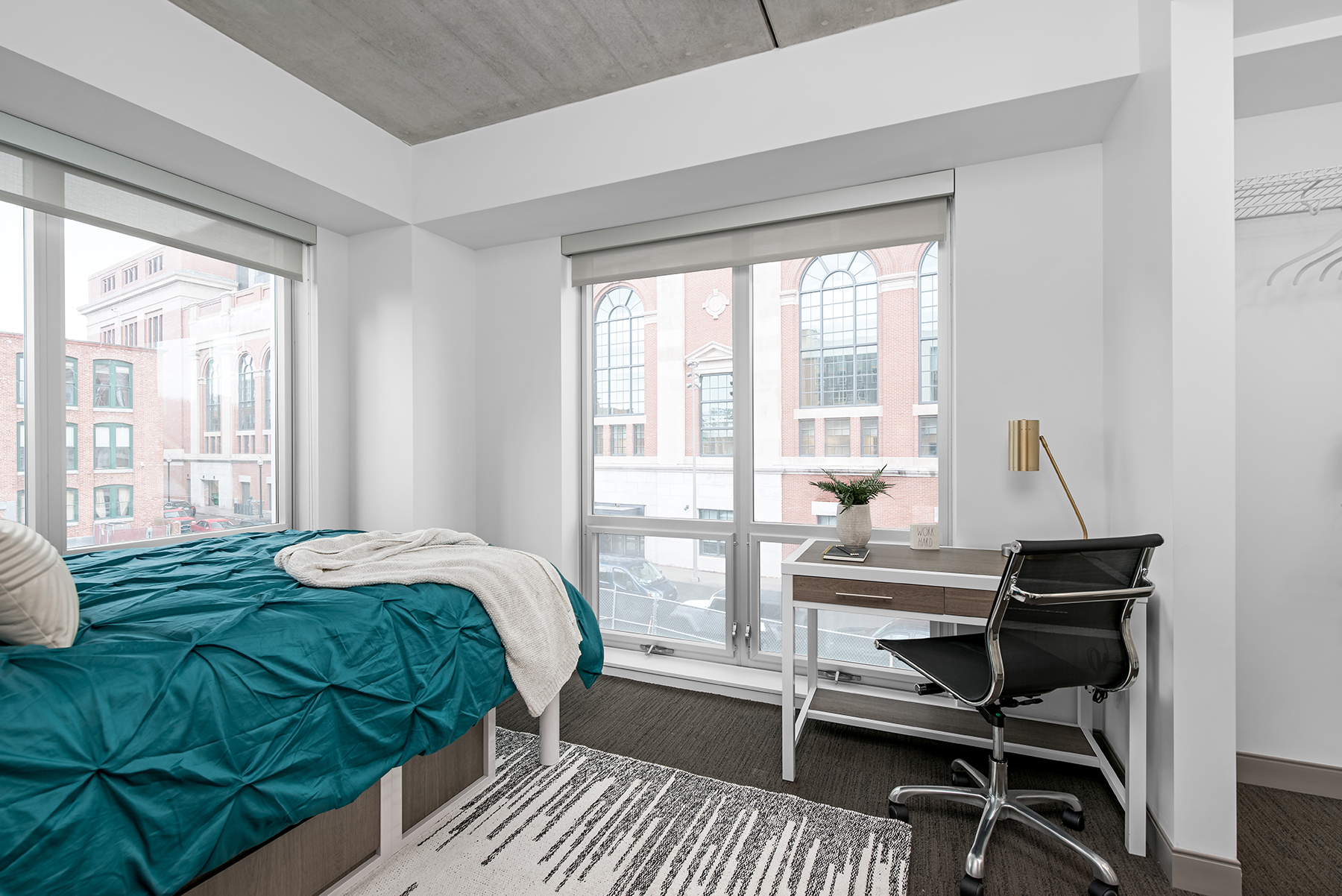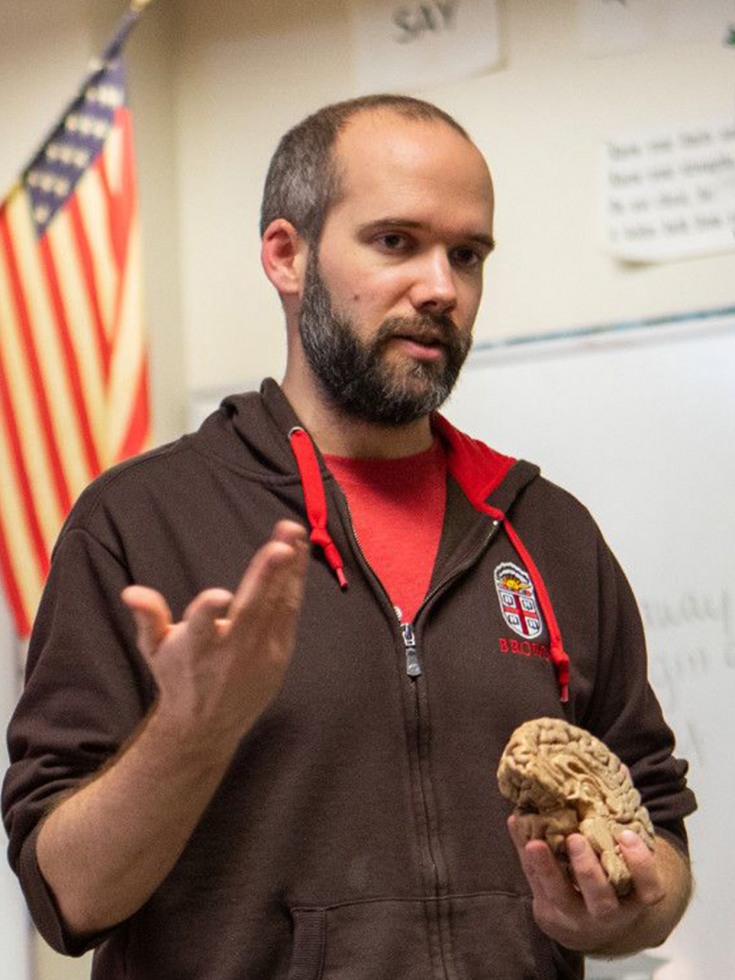PROVIDENCE, R.I. [Brown University] — Through a subsidiary named River House Holdings, LLC, Brown University has purchased River House, a 174-unit residential building completed by commercial developers in 2019 and located at 1 Point Street in Providence, and will transition the complex into housing for Brown graduate and medical students.
The University acquired the housing development through a subsidiary to ensure no disruption to the continuity of River House’s tax revenue to the City of Providence, while also supporting Brown’s academic goals of advancing the campus-centered educational experience of students in graduate and medical programs.
With the capacity to house 270 students in a mix of 174 studio, one-bedroom and two-bedroom apartments, the building will address a need expressed directly for years by Brown graduate students seeking affordable, high-quality housing options in proximity to the University’s campus, according to Provost Richard M. Locke. Brown plans to adapt River House’s current rental fee structure, which was developed for a commercial rental market, to align closer to the needs of graduate and medical students. To develop an affordable, equitable rental rate structure for student housing in River House, Brown has launched a working group to complete a full review of rental rates and amenities across Brown-owned graduate student housing.
“The addition of River House to our campus housing portfolio responds directly to the need among graduate students for high-quality, safe, affordable housing with easy access to classroom and laboratory buildings both on College Hill and in the Jewelry District,” Locke said. “This space will meet the unique living needs of master’s, incoming Ph.D. and medical students in particular, offering a residential option close to campus that will enrich their connections to the broader Brown community.”
The acquisition will advance Brown’s commitment to increasing its student housing inventory while helping to alleviate the impact that the demand for off-campus rental units has upon local neighborhoods in Providence. The University closed on the purchase of River House on Thursday, July 22.


